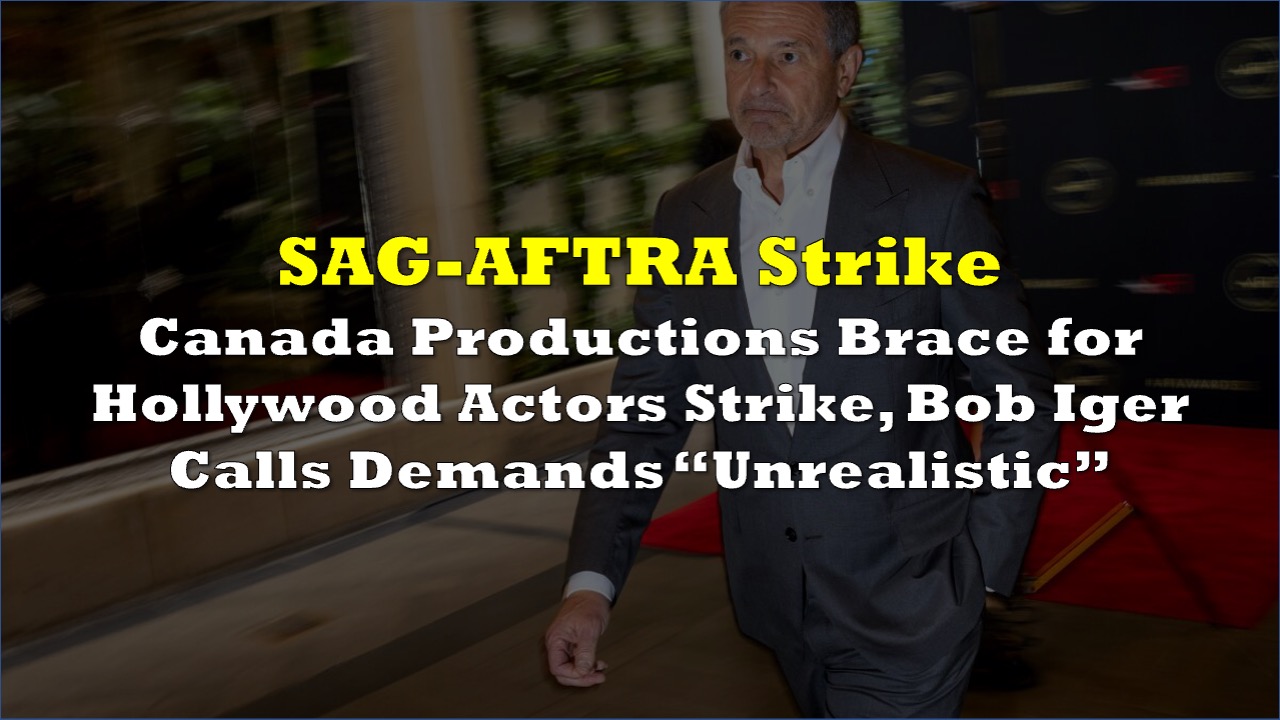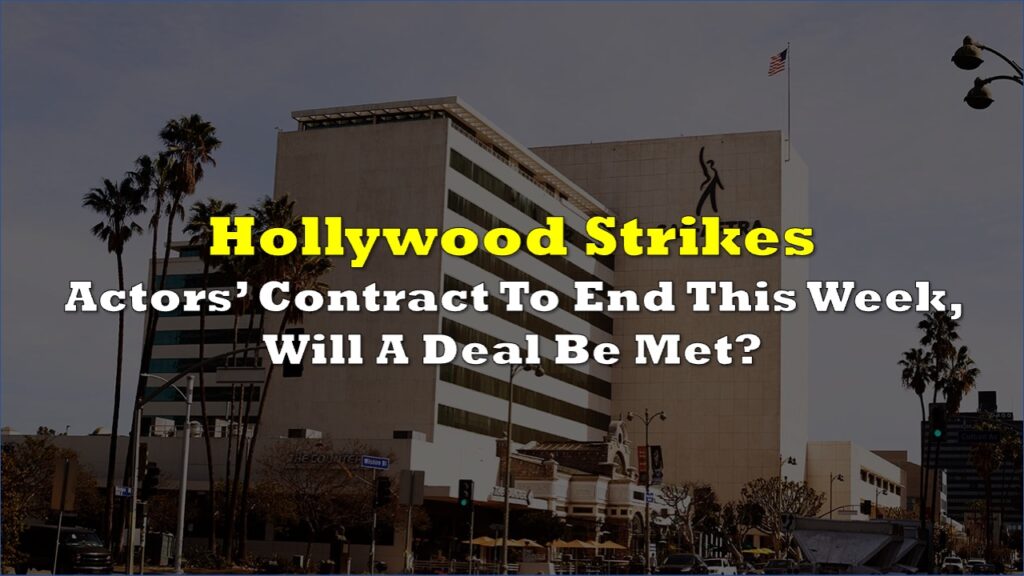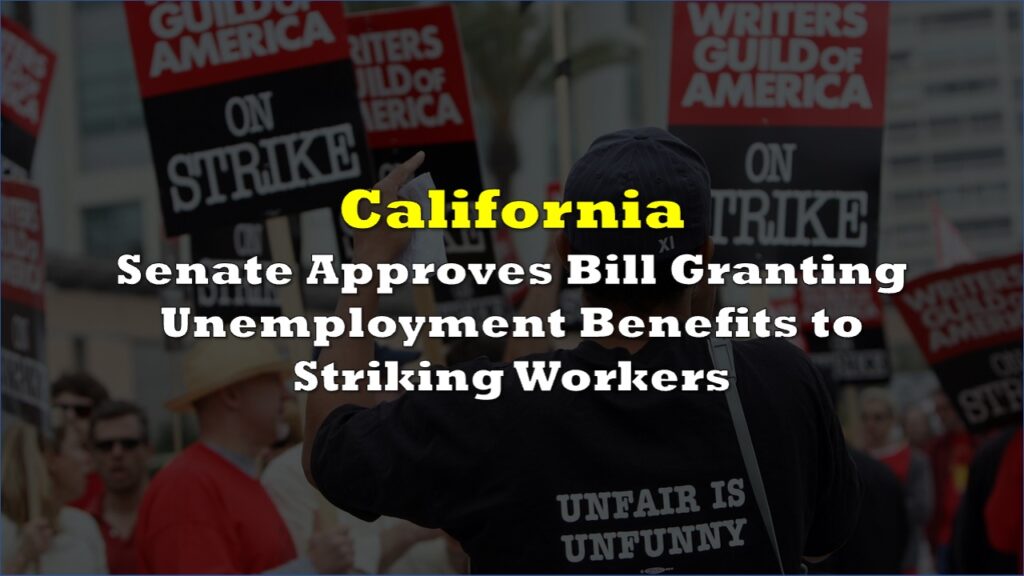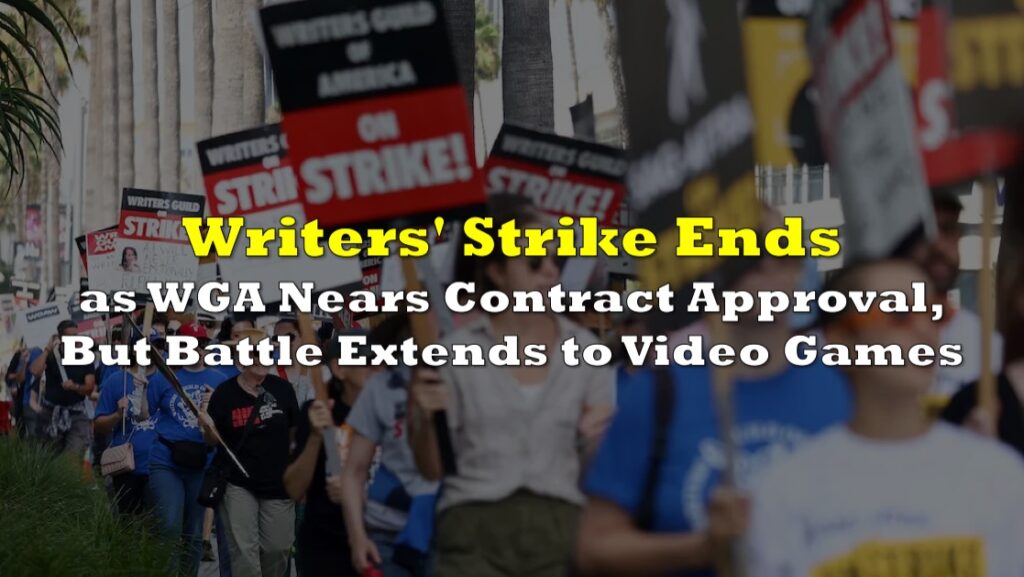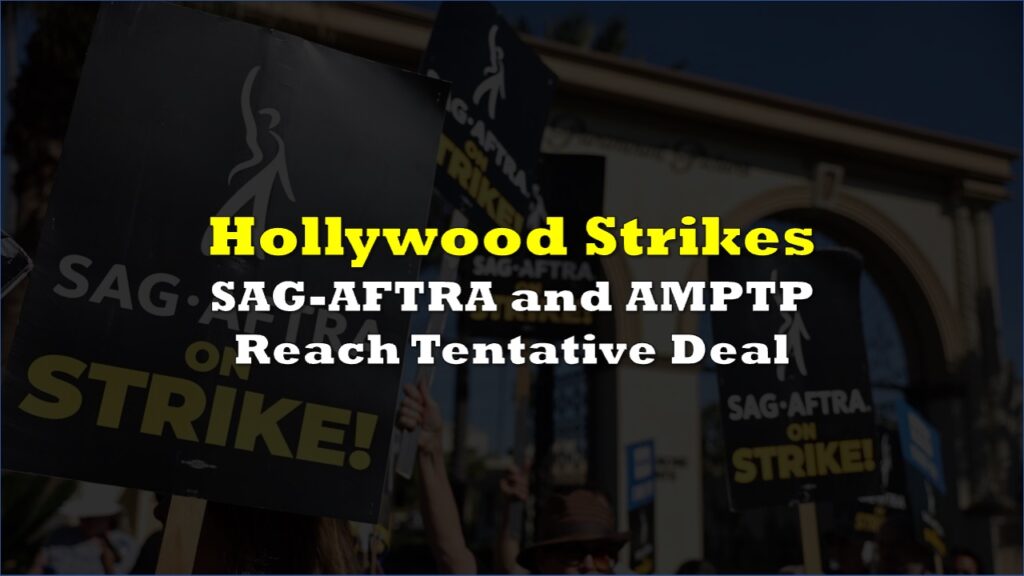Canada’s film and television industry is preparing for further job uncertainty as Hollywood actors from the Screen Actors Guild-American Federation of Television and Radio Artists (SAG-AFTRA) have decided to go on strike.
The strike, which began at midnight on Thursday, threatens Canadian sets with SAG stars that have already been affected by the ongoing Writers Guild of America (WGA) strike. The repercussions of the strike extend beyond the sets, raising concerns about the fate of prominent events like the Toronto International Film Festival (TIFF) and Fan Expo Canada.
TIFF, known for its star-studded festival and A-list press conferences, expressed concerns about the impact of the strike on its event. The organizers urged their partners and colleagues to engage in dialogue and hoped for a swift resolution in the coming weeks. Fan Expo Canada, a genre-focused pop culture event, also faced uncertainties, but the vice president of Fan Expo HQ dismissed the possibility of no-shows. However, there were doubts about whether some SAG members might choose to boycott such events in solidarity, even if their participation is not related to a project affected by the strike.
The strike’s effects are expected to reach Canada, where a significant portion of film and TV shoots take place for US productions. This could result in thousands of local talents and crew members being unemployed. Canadian actor and showrunner Anthony Q. Farrell expressed support for the strike, hoping it would lead to fair deals for both actors and screenwriters. However, he acknowledged that Canadian crew members might be adversely affected if their shoot involves a SAG cast member.
The Alliance of Canadian Cinema, Television and Radio Artists (ACTRA), Canada’s actors’ union, expressed solidarity with SAG, emphasizing that the fight is for the benefit of all performers. Meanwhile, Canadian production companies, such as Shaftesbury, stated that Canadian shows with Canadian casts would not be impacted by the strike. However, unannounced Canadian projects involving SAG actors could face challenges.
The strike also has implications for fall TV plans, with Citytv acknowledging potential delays in the return of popular titles such as “Law & Order,” “Chicago Med,” “Chicago Fire,” and “Chicago P.D.” The president of Toronto-based production company Shaftesbury noted that this situation could create opportunities for Canadian shows, as broadcasters might need to fill gaps in their schedules.
As the strike continues, the Canadian film and television industry is closely monitoring the developments and considering potential adjustments to mitigate the impact on productions, events, and schedules.
The wrong side of history
The last time actors went on strike was over two decades ago, in 2000, when they negotiated their commercial contracts, and then in 1980 over residuals from home media and pay television.
SAG-AFTRA president Fran Drescher said at the press conference on Thursday that “The companies have refused to meaningfully engage on some topics and on others completely stonewalled us.”
“You’re sitting on the wrong side of history. Shame on you,” Drescher called out to studio executives.
Much like striking Hollywood writers, SAG-AFTRA members want their piece of the streaming pie and regulation of AI use. For the actors, apart from higher wages to meet inflation, they are seeking increased residuals from streaming, protections from the use of their likeness using AI, as well as improvements to members’ health and pension plans.
Disney CEO Bob Iger has received flak for calling these demands “unrealistic.”
The reason we’re being “unrealistic” is because based on the #AMPTP’s current business model – sharing 2% of the profits with the people who design, create, and make your product – is bad business. That’s why the model has to change. https://t.co/VgQ1oIKPBd
— Daisy Gardner (@daisykpgardner) July 13, 2023
“I am shocked by the way the people that we have been in business with are treating us!” Drescher said on Thursday. “How far apart we are on so many things. How they plead poverty, that they’re losing money left and right when giving hundreds of millions of dollars to their CEOs. It is disgusting. Shame on them!”
The Alliance of Motion Picture and Television Producers (AMPTP), the trade association that represents studios, claims in a statement that they had offered “historic” contract improvements, including an 11% pay increase in the contract’s first year for background actors, stand-ins and photo doubles, and a 76% increase in residual payments for “high-budget” shows that stream overseas.
But Drescher, along with SAG-AFTRA’s chief negotiator Duncan Crabtree-Ireland criticized the alliance’s AI proposal — for that 11% pay increase, they proposed to allow studios to replace background actors with their AI-generated replicas in perpetuity in return for one day’s pay.
The actors join members of the WGA at the picket lines. The WGA has been on strike since May 2. Deadline reported earlier this week that per anonymous industry sources, the AMPTP has no intention of resuming negotiations with the striking writers until late October.
“The endgame is to allow things to drag on until union members start losing their apartments and losing their houses,” said an unnamed studio executive, with another saying that the goal of the studios is to “break the WGA.”
These claims have later been denied by a spokesperson for the studios, claiming that the studios “are committed to reaching a deal.”
Information for this story was found via The New York Times, Forbes, The Guardian, and the sources and companies mentioned. The author has no securities or affiliations related to the organizations discussed. Not a recommendation to buy or sell. Always do additional research and consult a professional before purchasing a security. The author holds no licenses.

